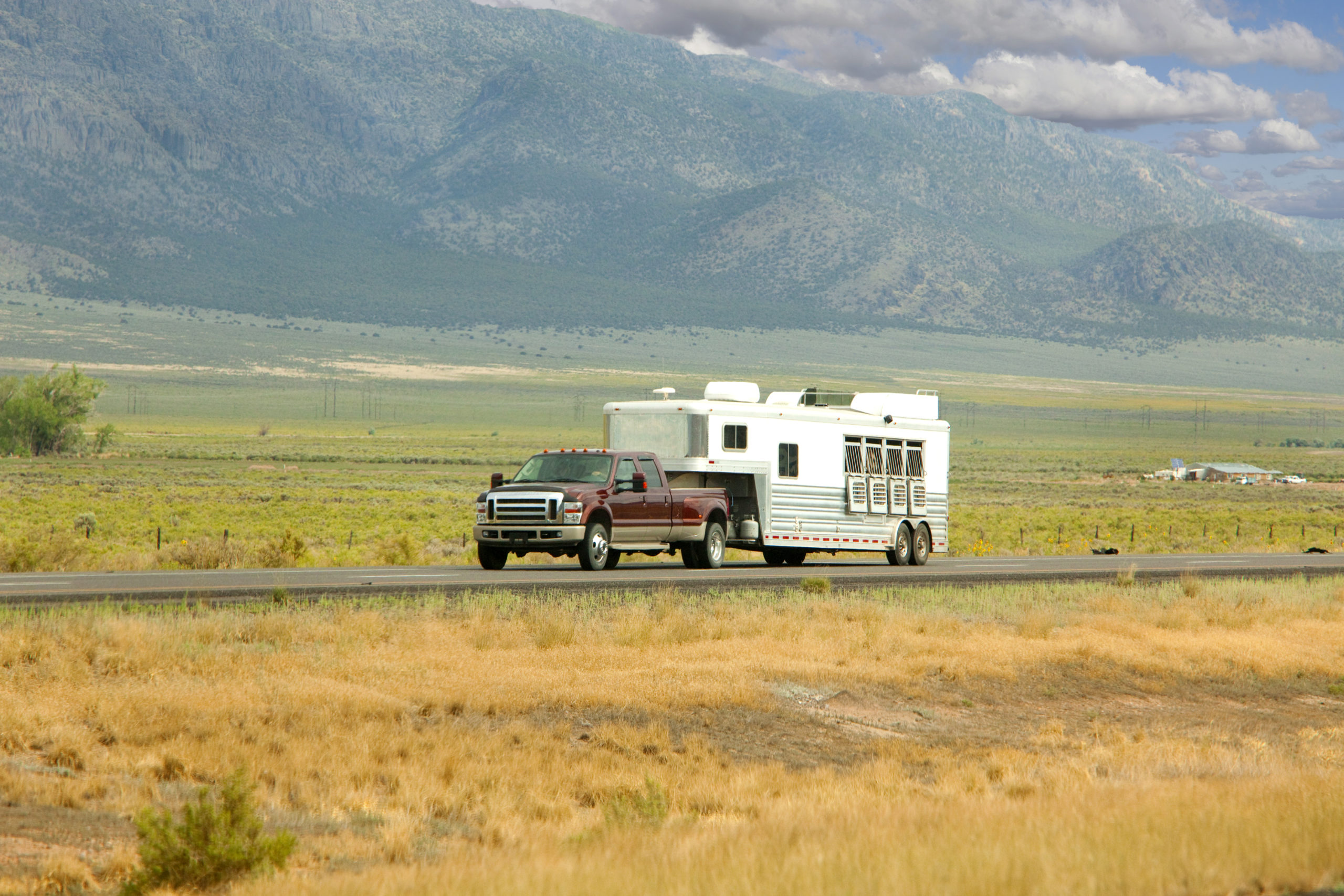As the summer barrel racing season moves into full swing, racers are loading up their horses to travel across the country—but there are often unwelcome flies hiding in and around horse trailers.
Managing flies both in horse trailers and at races is important to keeping horses calm, comfortable and focused so they can do their job inside the arena and avoid traveling stress.
Dr. Kathryn Slaughter-Mehfoud is a Kentucky-based equine veterinarian and surgeon who has seen many fly-related cases.
“I have sutured up a lot of lacerations—and even euthanized—horses that hurt themselves trying to get away from flies in the trailer,” Slaughter-Mehfoud said. “Lacerations sustained by horses while in fly-filled trailers are a common emergency. I have also diagnosed catastrophic fractures in horses that were trying to get away from flies.”
As the summer heat and standing water encourages the breeding of flies, any time is a good time to get flies under control, Slaughter-Mehfoud said.
“Even a horse if a horse does not sustain a laceration because of flies, they can contract a disease transmitted by flies, which can lead to infection,” Slaughter-Mehfoud said. “Flies can transmit Equine Infectious Anemia and the bacteria responsible for Pigeon Fever.”
With the nuisance and negative health impacts flies bring managing the environment is key to killing the buzz.
- Horse Health: Duct Work
- Equine Infectious Anemia: Current Coggins Papers Matter
- Equine Nutrition and Care While Traveling to Rodeos
1. Prepare the trailer for the trip.
“Flies like moisture,” Slaughter-Mehfoud said. “One of the best ways to reduce flies in horse trailers—it’s a hard task—is to remove the mats after each use. Clean the bottoms of the mats and the inside of trailer. Then, letting the mats dry completely before replacing them. Make sure to store the trailer somewhere where it cannot get wet due to rainfall.
“Moisture between the mats and the floor is the perfect breeding environment for flies and it sustains their repopulation within the trailer.”
2. Remove manure frequently.
Clean manure piles out of the trailer as frequently as possible. Trailers should always be cleaned between uses and on long road trips. Even removing piles closest to the back gate makes a difference.
“Even one pile of manure attracts dozens of flies and readily removing manure with drastically cut down on the number of them,” Slaughter-Mehfoud said.
3. Park strategically at events.
Flies breed in water and seek densely populated areas to find food. According to Slaughter-Mehfoud, don’t park near bodies of water, wash racks, or high-traffic areas such as the entrances and exits of arenas.
“Parking out alone is the best bet, because not everybody will have a fly-repellent scheme that’s as good as yours,” Slaughter-Mehfoud said. “Other trailers? Don’t trust that they’re repelling flies as well as you are.”
4. Use fly spray liberally
Apply fly spray before leaving on a trip and spray horses in the trailer (if they will let you) if you see even one fly. Apply fly spray every four-to-six hours, even if it lasts longer than that.
Slaughter-Mehfoud’s top pick for fly sprays is Ultrashield Sport because of its sweat resistance and staying power.
“Ultrashield Sport not only kills and repels flies, it repels mosquitos which are a vector for many equine diseases like the West Nile Virus,” Slaughter-Mehfoud said. “I also really like Ultrashield Sport because it isn’t easily washed off by the rain and it’s effective up to 14 days after you apply it.”
5. Dress up your horses with the right gear.
While trailer parking practices, fly spray application and manure removal will do the most work for reducing flies, barrel racers can top off their routine by putting fly masks, boots and sheets on their horses to protect them from biting flies.






